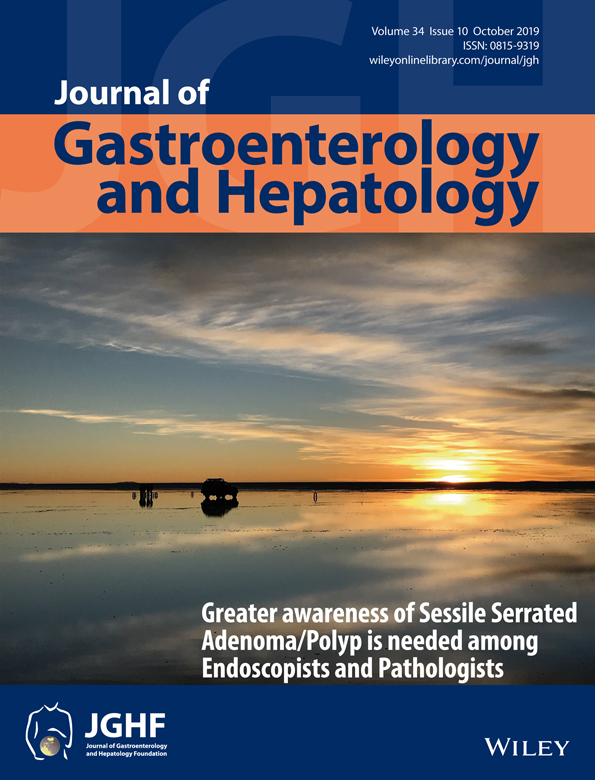Moderate alteration to gut microbiota brought by colorectal adenoma resection
Abstract
Background and Aim
Microbial dysbiosis is involved in the development of colorectal cancer and its most common precancerous lesion, colorectal adenoma. Endoscopic resection is one of the procedures for primary prevention of colorectal cancer, yet little is known about how the endoscopic therapy influences gut microbiota.
Methods
We conducted a prospective study of 20 patients who underwent endoscopic resection of colorectal adenoma and analyzed the fecal microbiota before and 3 months after adenoma resection. MiSeq sequencing of 16S rRNA genes was performed to determine the alterations in microbial diversity and structure. To discriminate the microbiota of the two groups, random forest and receiver operating characteristic analysis were applied, and a genus-based microbiota signature was obtained.
Results
Despite few alterations in overall microbial structure after adenoma resection, the abundance of Parabacteroides revealed a significant increase postoperatively (3.8% vs 1.5%, 0.1160), and the microbiota signature of Parabacteroides, Streptococcus, and Ruminococcus showed an optimal discriminating performance of postoperative status with the area under the curve 0.788, P < 0.001.
Conclusion
Fecal microbial alterations indicate the moderate influence of adenoma resection on gut microbiota and lay the groundwork for microbial prediction of adenoma recurrence. Larger sample studies are further required to validate the findings.




